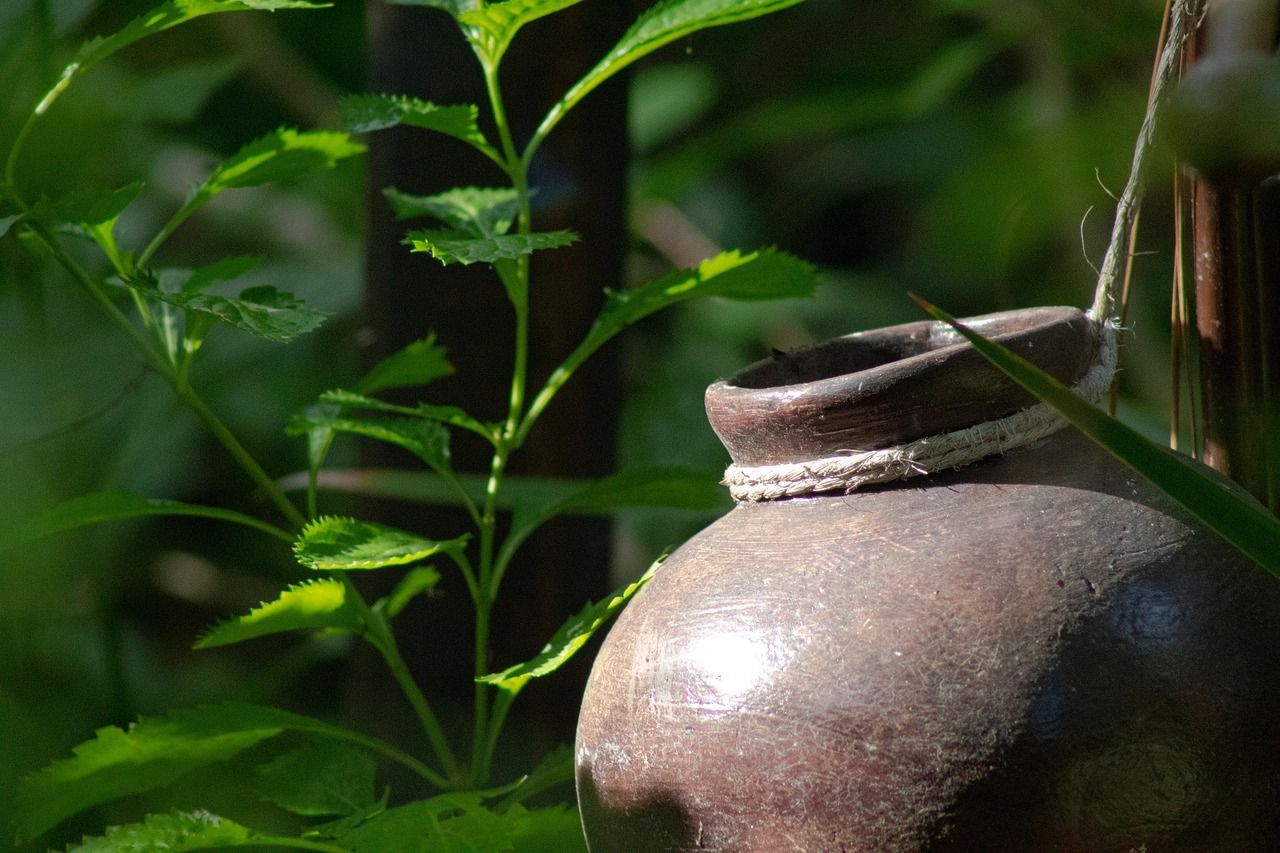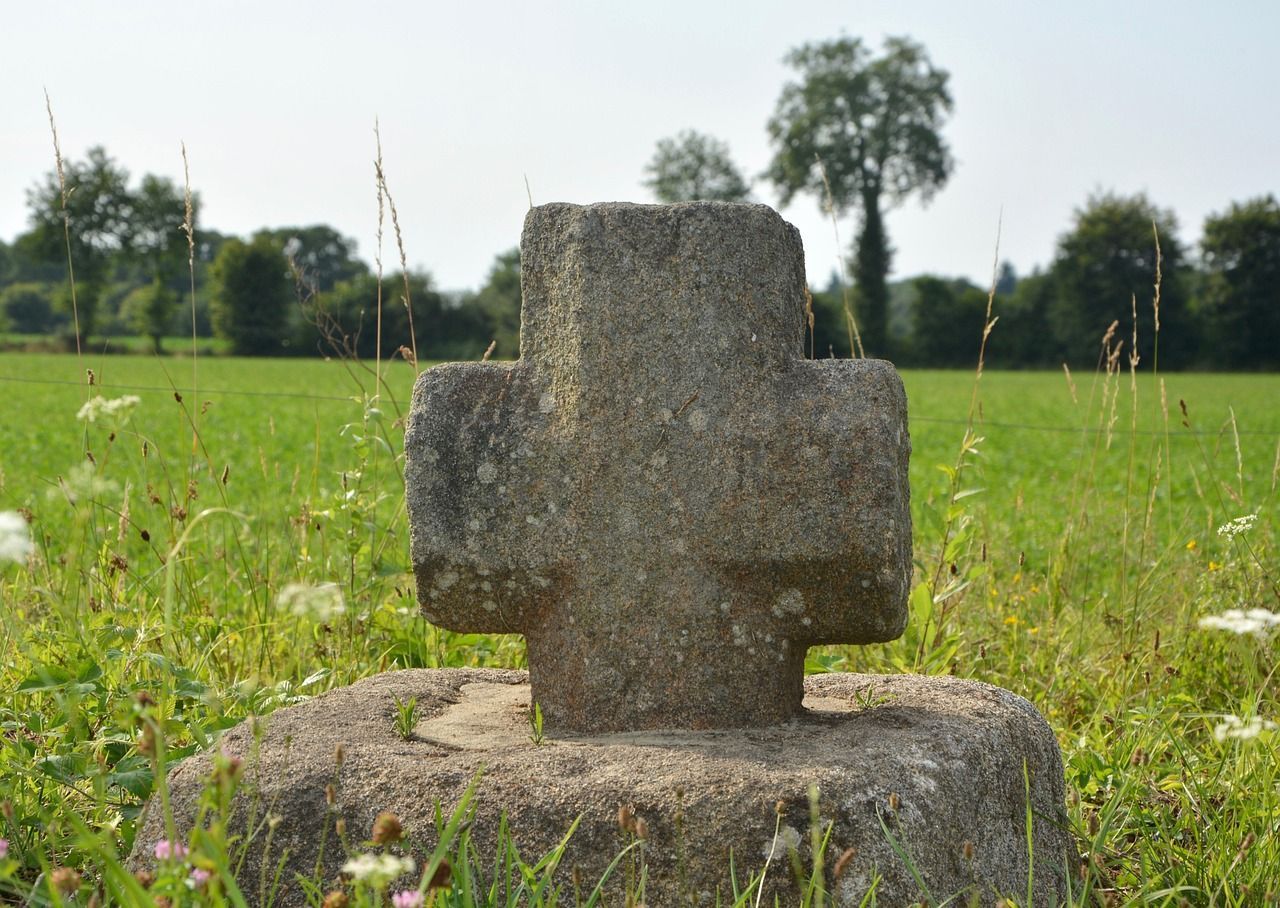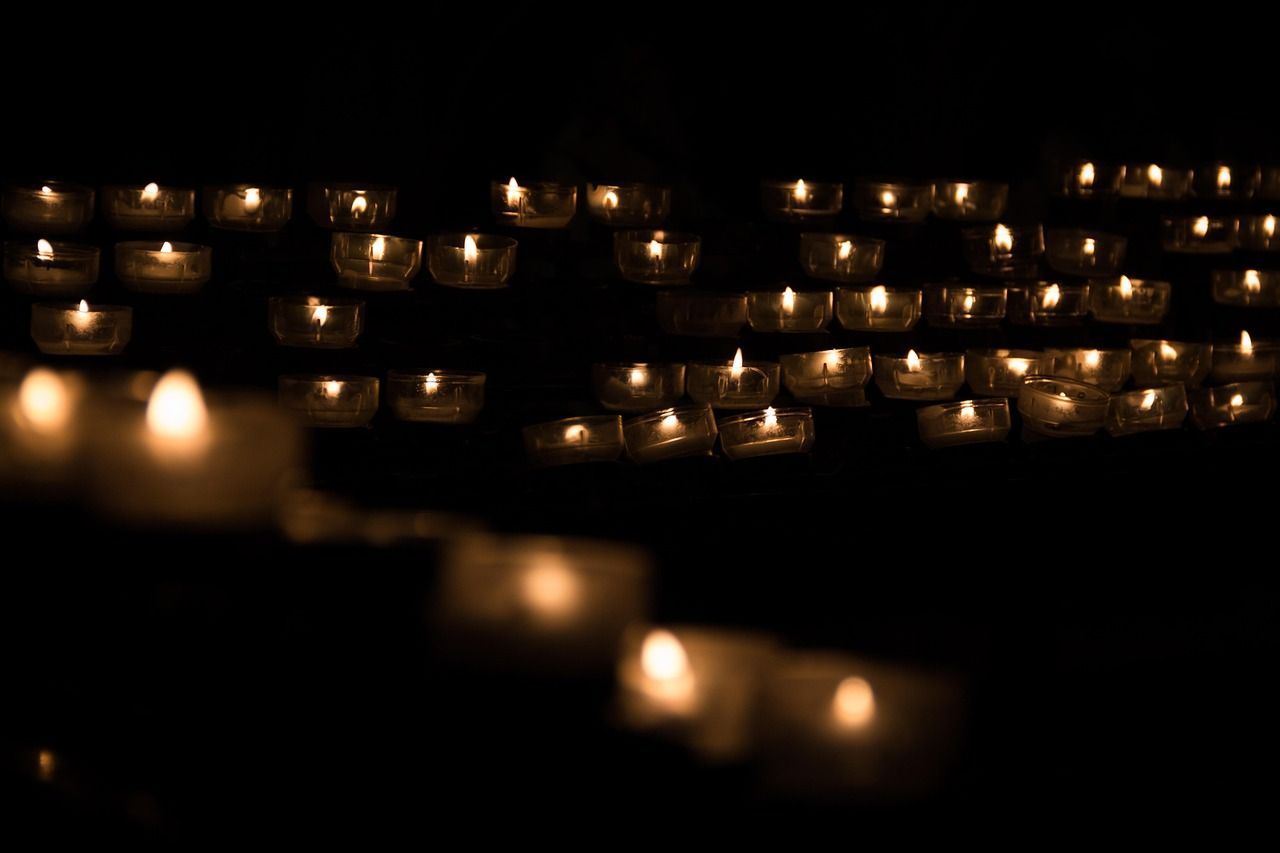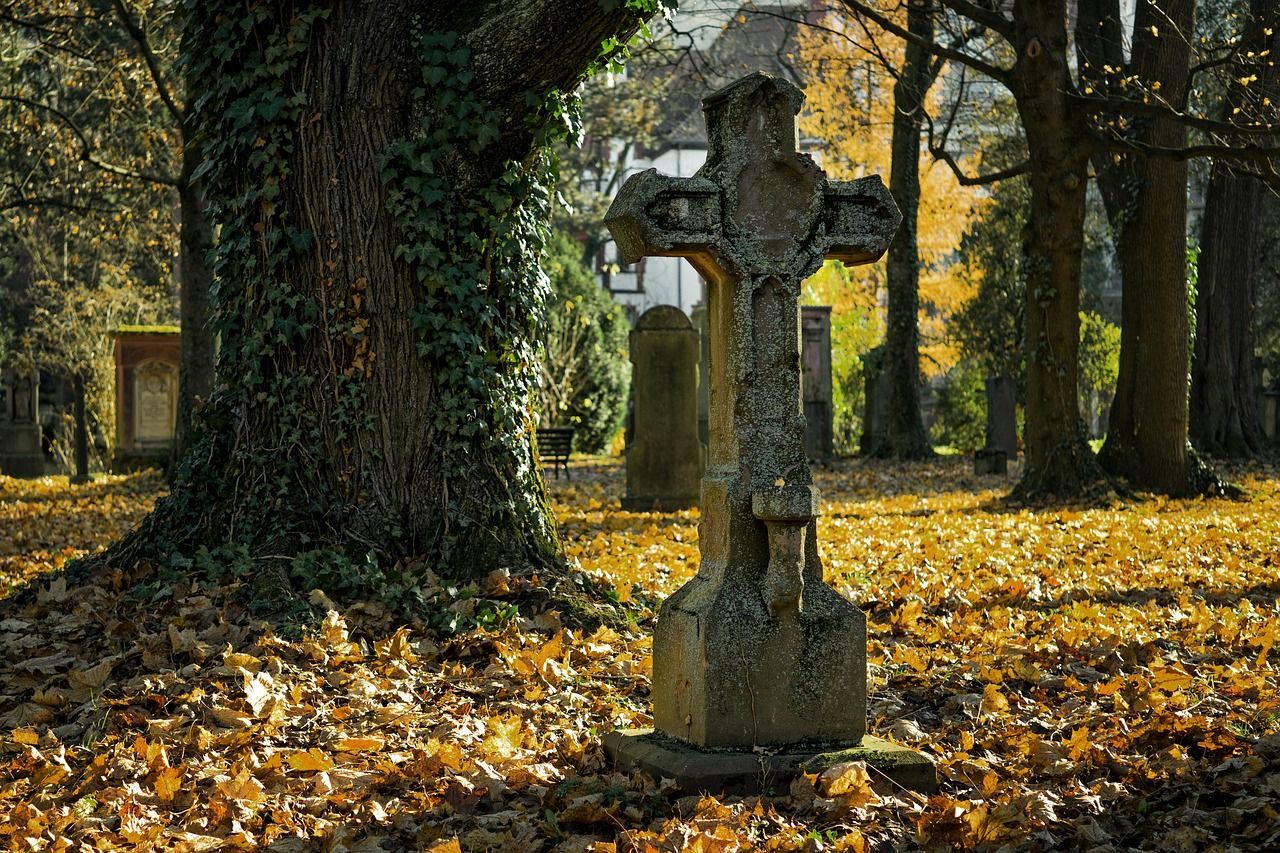Planning a Funeral: What to Expect From Traditional Services
Planning a funeral service
When planning a traditional funeral service, you'll navigate selecting a funeral home offering extensive services, discussing caskets and urns, arranging visitation with a respectful atmosphere, and planning meaningful elements like music and eulogies. Explore burial or cremation options that take into account environmental and emotional factors for a personalized touch. Remember to investigate post-funeral details such as food arrangements, music selection, and guest participation to create a comforting and supportive atmosphere. Don't forget the importance of decor choices to honor the deceased and provide a peaceful space for remembrance.
Key Takeaways
- Selection of funeral home for services and support.
- Personalized casket, urn, and decor choices.
- Ceremony details like music, eulogies, and flowers.
- Consideration of burial/cremation options and costs.
- Infusion of cultural/religious customs for honoring heritage.
Funeral Home Selection
When selecting a funeral home, it's important to take into account the services and facilities that best suit your needs and preferences. During this challenging time, you may find comfort in knowing that the funeral home you choose can provide support beyond the basic arrangements.
One critical service to consider is grief counseling. Dealing with loss can be overwhelming, and having access to professionals who can offer emotional support and guidance can make a significant difference in your healing process. Make sure that the funeral home you select offers these services to help you navigate through this difficult period.
Floral arrangements and memorial tributes play an important role in honoring your loved one's memory. Look for a funeral home that can assist you in selecting or arranging these meaningful tributes. These personalized touches can be a beautiful way to celebrate the life of your loved one and provide a sense of closure.
Additionally, transportation logistics and handling legal paperwork are practical aspects that the funeral home should manage efficiently. From coordinating transportation for the service to assisting with necessary documentation, a reliable funeral home can alleviate some of the burdens during this time of grief.
Casket and Urn Choices
Selecting the right casket or urn is a crucial aspect of honoring your loved one's memory during the funeral planning process. When choosing a casket or urn, consider personalized tributes that reflect your loved one's unique personality and interests. There are various decorative options available, ranging from intricate designs to simple, elegant choices. If you're environmentally conscious, you may want to explore eco-friendly alternatives such as biodegradable urns or sustainably sourced caskets.
Budget considerations are vital when selecting a casket or urn. Funeral homes typically offer a range of options to accommodate different financial situations. Discuss your budget openly with the funeral director to find a choice that aligns with your preferences and financial constraints.
Keepsake selections, such as miniature urns or jewelry pieces, can provide a tangible way to hold onto memories of your loved one. These items can be a source of comfort and a lasting tribute to their legacy.
When exploring casket and urn choices, remember that the most important aspect is finding a vessel that resonates with you and honors the life of your loved one in a meaningful way.
Visitation Arrangements
Consider arranging a visitation to provide a space for family and friends to gather and support each other during this difficult time.
Floral arrangements can add a comforting touch to the visitation space. Opt for soft colors and gentle scents to create a serene atmosphere.
When it comes to guest etiquette, remind visitors to maintain a respectful demeanor and offer condolences to the bereaved family.
Music selection plays a significant role in setting the tone for the visitation. Choose soothing melodies or meaningful songs that hold significance for the departed loved one.
Photography guidelines should be established to make sure that all attendees feel comfortable. Respect everyone's privacy by obtaining consent before taking any pictures.
Refreshment planning is crucial to offer a small reprieve during the visitation. Simple refreshments like tea, coffee, and light snacks can provide comfort to guests. Make sure there are options to accommodate different dietary preferences.
Funeral Service Details
Let's explore the important aspects of arranging a meaningful funeral service to honor your loved one's memory. When planning the funeral service details, several elements come together to create a touching tribute.
Firstly, consider floral arrangements to add a touch of significance and symbolism to the service. These blooms can convey emotions and serve as a comforting presence during this difficult time.
Next, the music selection plays a significant role in setting the tone of the service. Choose songs that hold importance for your loved one or that evoke cherished memories.
Eulogy speeches offer an opportunity for family and friends to share heartfelt memories and celebrate the life of the deceased. These speeches can provide comfort and closure to those in attendance.
Additionally, incorporating photo displays can create a visual passage through your loved one's life, encouraging reflection and remembrance.
Lastly, consider suggesting memorial donations in lieu of flowers. This allows attendees to contribute to a cause that was meaningful to your loved one, leaving a lasting impact in their honor.
Burial or Cremation Options
When deciding between burial or cremation for your loved one, it's important to understand the unique aspects and considerations of each option. Both choices offer eco-friendly options, with cremation typically requiring less land use compared to traditional burials.
Cost comparisons can vary greatly, with cremation often being more cost-effective than burial due to factors like caskets and cemetery fees. Personalization ideas are abundant for both options, from customized urns for cremation to personalized headstones for burial, allowing you to honor your loved one in a meaningful way.
Considering the environmental impact, cremation releases carbon emissions, while burials can involve embalming fluids that may seep into the ground. These factors may influence your decision-making process if sustainability is a priority.
Emotional considerations play a significant role in this decision. Some find comfort in visiting a gravesite, while others may prefer having ashes in an urn at home. Understanding your emotional needs and those of your family can help in choosing the option that brings solace during the grieving process.
Ultimately, whether you opt for burial or cremation, it's important to weigh these factors against your personal beliefs, financial considerations, and emotional well-being to make the choice that best honors your loved one's memory.
Religious or Cultural Customs
Exploring the religious or cultural customs surrounding funeral practices can provide valuable insights into how to honor and commemorate your loved one's life in a meaningful way. Ritual practices, cultural traditions, religious ceremonies, symbolic gestures, and community support all play vital roles in guiding the process of saying goodbye to a cherished individual.
Ritual practices often form the foundation of funeral services, offering a structured way to express grief and celebrate the life of the departed. These ceremonies can vary widely depending on the religious or cultural background, providing a unique and personalized way to pay respects.
Cultural traditions bring a sense of continuity and connection to one's heritage, enriching the funeral with customs passed down through generations. These traditions serve as a bridge between the past and the present, honoring both the deceased and their legacy.
Religious ceremonies infuse the funeral service with spiritual significance, offering comfort and guidance during a time of loss. These rituals can provide solace and a sense of peace, reinforcing the belief in a higher power and an afterlife.
Symbolic gestures, such as lighting candles, laying flowers, or sharing memories, can convey deep emotions and serve as powerful expressions of love and remembrance. These simple yet profound acts hold immense significance and can help in the healing process.
Post-Funeral Gatherings
Post-funeral gatherings provide a space for nurturing connections and offering solace during the grieving process, promoting support and reflection. These gatherings often include opportunities for memory sharing, where attendees can reminisce about the life of the departed loved one, sharing stories and moments that celebrate their legacy.
Food arrangements play an important role in post-funeral gatherings, offering comfort and sustenance to guests. Providing a variety of dishes that cater to different preferences and dietary needs can make sure that everyone feels cared for during this emotional time.
Music selection can also greatly impact the atmosphere of the gathering, setting a tone of remembrance and honoring the life of the deceased. Choosing songs that hold significance or were favorites of the departed can evoke powerful emotions and create a sense of connection among guests.
Guest participation in post-funeral gatherings is encouraged, allowing individuals to express their condolences, share memories, or offer support to the bereaved family. Creating an inclusive environment where everyone feels welcome to contribute can foster a sense of community and understanding.
Decor choices, such as flowers, candles, or photos, can enrich the ambiance of the gathering, creating a peaceful and comforting space for reflection and healing. Thoughtfully selected decor can serve as a visual tribute to the life that was lived and the memories that will endure.
Frequently Asked Questions
How Can I Personalize the Funeral Service?
You can truly honor your loved one by incorporating personalized tributes, meaningful rituals, customized music, unique decorations, and special readings into the funeral service. Adopt these elements to create a heartfelt and unique farewell.
What Should I Do With the Deceased's Personal Belongings?
When deciding what to do with the deceased's personal belongings, start by sorting items. Consider donating clothes, keeping memories, honoring family heirlooms, and making emotional decisions. Take your time and choose what feels right for you.
Is It Appropriate to Bring Children to the Funeral?
You may wonder if bringing children to a funeral is appropriate. Consider childcare options, emotional preparation, family discussions, age-appropriate explanations, and comforting rituals. Remember, guiding them through this may provide comfort and understanding during a difficult time.
How Can I Support Someone Who Is Grieving?
When supporting someone who is grieving, offer emotional support through comforting gestures. Listen actively and provide help. Show understanding of their grief by being present. Send condolences, display empathy, and assist practically by providing meals and other help.
What Are Some Alternative Memorial Ideas?
When exploring alternative memorial ideas, consider an outdoor ceremony under a memorial tree, a virtual tribute for wider participation, a celebration of life to honor memories, and a memory board to cherish moments.
Conclusion
As you navigate the intricate details of planning a funeral, remember that you aren't alone in this passage. Each decision you make is a thread in the fabric of your loved one's legacy.
Cherish each moment with care, like a delicate flower blooming in a garden of memories.
Together, we'll honor their life with respect and dignity, weaving a beautiful tribute that will last a lifetime.











